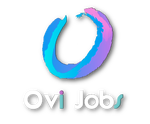Employers have long expected job candidates to do some company research for an interview, but many applicants skip this step or only do the bare minimum of homework.
And they’re passing up a great opportunity.
Learning more about a prospective employer can give you an edge over the competition. Doing your homework will enable you to craft a tailored resume and customized cover letter that will catch a hiring manager’s eye.
Here are 7 tips to help you nail your company research:
1. Start with the company’s website
You don’t have to be a super sleuth to do company research. All you need are a couple of free hours and some Wi-Fi. Visiting a company website’s About Us page is likely to give an overall description of the company, a mission statement, and maybe even profiles of staff or senior leadership. Read it all. And be sure to check out the company’s social media feeds as well.

2. Search for external information about the company
While a company’s website is a great place to begin, it shouldn’t be your only stop. It’s only going to present a rosy view. A savvy job candidate will go one step further to learn what others have to say about the business. Do a web search for the company and look for relevant articles from trade publications, business journals, local newspapers, and Wall Street analysts covering that industry. They will give you a more objective and multi-faceted view, including information on the company’s financial stability, how well it carries out its service philosophy, and details on its services, products, customers, and primary competitors.
Also check employer review sites such as Glassdoor and Fairygodboss to see the comments of employees, former employees, and applicants who have interviewed at the company. This will give you an unvarnished look at the interviewing process — and the organizational culture (see tip No. 3 for more).
3. Carefully evaluate the workplace culture
It’s a little harder to uncover, but you need to ensure that a company’s culture is the right fit for you. Each company has its unique style. Some companies have relaxed workplace cultures and companies that take a more buttoned-up approach. Businesses variously emphasize, for example, a collaborative work environment, work-life balance, or a flat organizational structure that helps involve workers more in key decision-making processes. Make sure a company’s values are aligned with your own. (Finding out about a firm’s organizational culture can also give you hints as to what you should wear to an interview.)
4. Leverage your network
Scroll through your contacts list and find people who might know a thing or two about the company, or even work there, and ask them to share their insights and experiences. LinkedIn can also be an invaluable resource. With millions and millions of users, many of whom are senior in their industry, you may be able to uncover a lot about a company and the employees who work there.
And while you’re doing online company research for an interview, it’s a good idea to take a fresh look at your digital footprint as well. It’s a safe bet that the people seeking to interview you are taking a look.

5. Connect with a recruiter
Having a recruiter can make all the difference. Recruiters with specialized staffing agencies understand the nuances of the job market in your area. They know what companies need and can deliver your candidacy as the solution. Finding a great job can often feel like a job itself. Finding a recruiter can help alleviate much of the burden.
If you do choose to work with a recruiter, be sure to carefully consider their recommendations, whether it’s advice about tailoring a resume and cover letter or coaching on job interview best practices. They are the professionals, and they are there to help.
6. Pursue informational interviews
It’s a wise idea to take a broader approach to your research, extending it to learning about the field or industry you’re interested in, not just the company at which you hope to land an interview for an open position. There’s no better way of doing this than setting up an informational interview. Because you’ll be gaining knowledge straight from the source — people currently employed in that field — you’ll be able to ask informed questions as opposed to simplistic ones when you do get to the real interview.
Seek out people who’ve been actively involved for at least three or four years in the field you’re researching. If you don’t know anyone who meets these qualifications, get names from friends, relatives, classmates, or even your alumni association.
Be transparent with your motivation, however. Don’t use the meeting as a pretext to get through the door and make a pitch for a specific job. You’re asking for an informational interview, so you should keep it as an informational interview. When approaching someone about such a discussion, you may want to use the word meeting rather than an interview so there’s no misunderstanding about your purpose.
7. Find out who you’ll be talking to at the job interview
When a company invites you for an in-person job interview, sometimes HR representatives will indicate the name of the interviewer, but not always. If they don’t, when you reply and accept, be sure to politely ask if they know who you will be interviewing with. Take note of the title, the spelling of the name, and the proper salutation. Then research that person just like you did the company at large. At a minimum, look them up on LinkedIn to see if you have any shared connections — whether that’s people, places worked, schools attended, or nonprofits you both are interested in. Weaving in a reference like one of these during the interview will help you begin to establish a rapport with the HR rep or hiring manager.
Not knowing enough about the company you’re applying to is one of the biggest mistakes you can make — but also one of the most avoidable. Company research for an interview will make you better prepared, so when you do sit down for that meeting you can make a solid case as to why the company should hire you. They’ll see you as a candidate who takes the initiative to learn about the company’s values, workplace culture, and mission, as opposed to the candidate who gives cut-and-paste job interview answers.
In short, there are no downsides to doing your homework before the big job interview.







